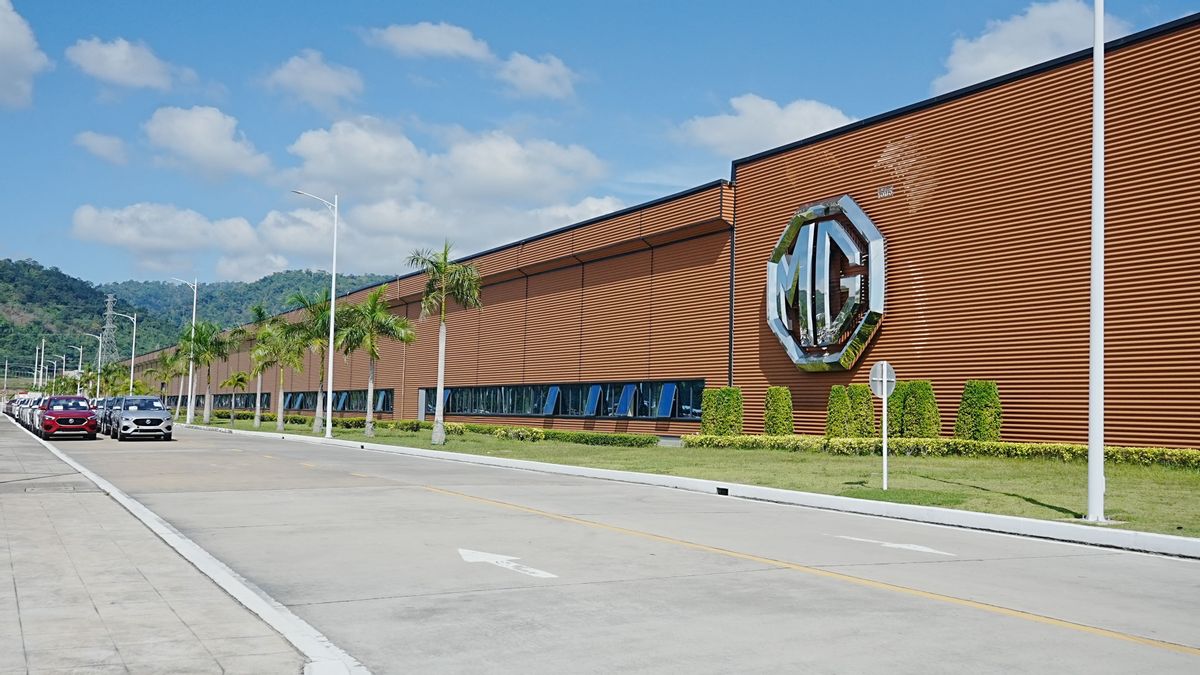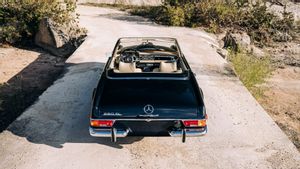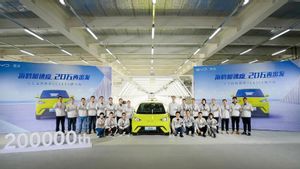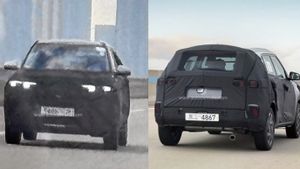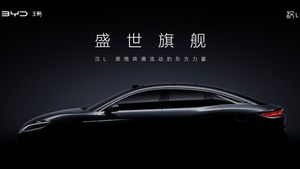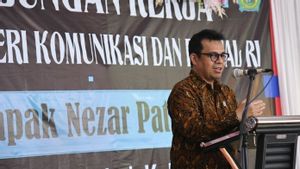JAKARTA - Since being acquired by SAIC Motor, China's automotive company, Morris Garage (MG) has continued to demonstrate its commitment to expanding global market share. Currently, MG is again a automotive company that should be taken into account thanks to a number of the latest models with attractive designs and advanced features.
The success of the MG brand on a global scale cannot be separated from its production plant located in Thailand, precisely in Chon Buri. The factory, which operates under the name of the SAIC Motor CP entity, has been established since 2018.
The main attraction of the factory is the use of autonomous and robotic technology in its operations. Located in the WHA Eastern Seabord Industrial Estate 2, Chon Buri, Thailand, this assembly plant has a production capacity of up to 100,000 units per year.
"Strong support from various parties, especially MG consumers around the world, has made MG a globally valued mobility choice," said Arief Syarifudin, Marketing & PR Director of MG Motor Indonesia, in an official statement received by VOI on Thursday, November 30.
The construction of this factory involves an investment of 30 billion Baht or equivalent to IDR 13 trillion. In addition, part of the 12 hectare area of the assembly area has been dedicated to EV battery production which is targeted to reach 50,000 units each year.
Factory facilities include Body Shop for the manufacture of vehicle skeletons, Paint Shop as the vehicle painting area that has been formed, and General Assembly Shop (GA Shop) as a place to assemble vehicles as a whole.
In the context of pure electric vehicle (BEV) model production, there is also an electrical battery assembly facility that is the first Battery Shop in Thailand to meet local needs as a whole. This facility uses the Cell-to-Pack (CTP) technology module which reduces the number of battery modules and directly regulates Battery Cells.
This module provides several advantages, including simplification of battery structures, wider space compared to Cell-to-Module (CTM) modules, increasing battery capacity with lighter weight, and increasing battery energy density. Founded on an area of 5000 square meters, this MG battery assembly plant uses advanced technologies such as Gluing Robot, End-of-Line testing, and Automatic Guided Vehicles (AGV) systems.
Arief added that he hoped that factories in Thailand together with factories under construction in Indonesia would support the sale of MG vehicles in Asia Pacific and help build environmentally friendly ecosystems globally.
"We apply the same principle with full dedication in Indonesia, where the government's commitment to achieving neutral emissions by 2060 encourages us to accelerate the penetration of electric vehicles in Indonesia. Through the local production of MG vehicles, we ensure that every vehicle that leaves the production line has undergone rigorous quality testing," Arief added.
SEE ALSO:
For information, MG Motor Indonesia has announced that the MG ZS EV and MG4 EV models will be produced locally, as part of the company's global strategy to deal with high demand for electric vehicles and strengthen the role of brands in supporting environmentally friendly ecosystems.
The factory that will produce the two electric vehicles is located in Cikarang, West Java, using the SAIC facility. MG emphasized that this factory is capable of producing up to 100,000 vehicles per year.
The English, Chinese, Japanese, Arabic, and French versions are automatically generated by the AI. So there may still be inaccuracies in translating, please always see Indonesian as our main language. (system supported by DigitalSiber.id)
